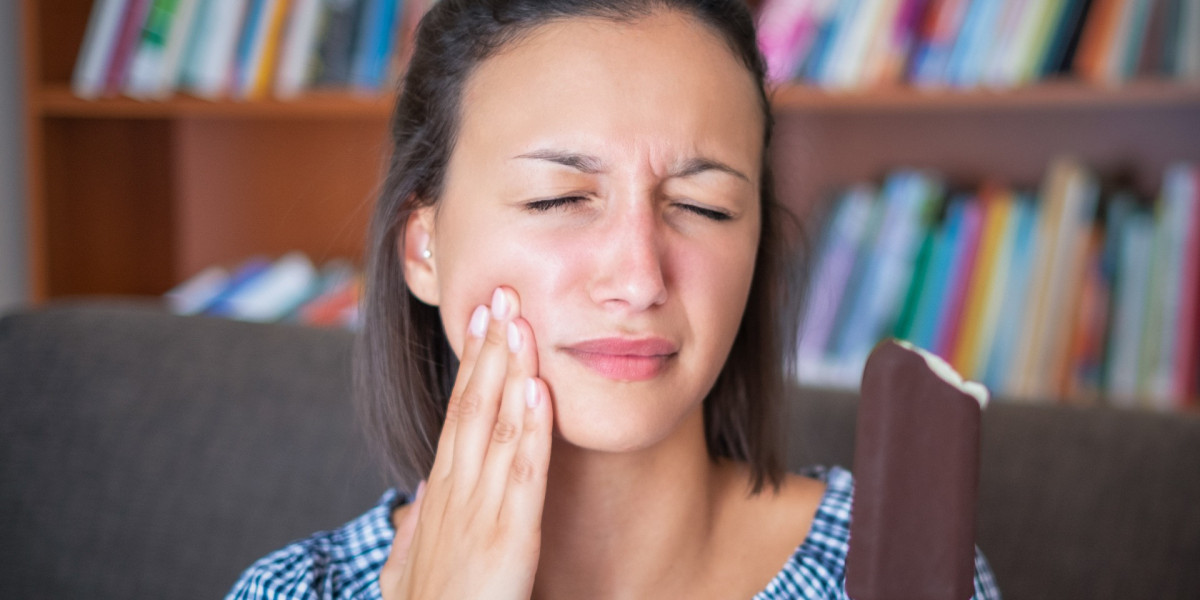sudden tooth sensitivity is a common dental issue that many people experience. It can be triggered when your teeth react to certain stimuli like hot or cold foods, sweet treats, or even brushing. This unexpected sensitivity can be quite painful and concerning, especially if it comes on suddenly. Understanding its causes and knowing how to address it can help alleviate discomfort and prevent more severe dental problems.
What Causes Sudden Tooth Sensitivity?
Enamel Erosion
Enamel is the hard outer layer of your teeth that protects the sensitive inner layers. Over time, enamel can wear down due to acidic foods, aggressive brushing, or grinding your teeth (bruxism). When this happens, the dentin layer underneath, which is more porous and sensitive, becomes exposed, leading to tooth sensitivity.Gum Recession
Gum recession occurs when the gum tissue pulls away from the tooth, exposing the tooth’s root, which lacks the protective enamel layer. This can cause sudden sensitivity, particularly to temperature changes.Recent Dental Procedures
Sometimes, dental work such as fillings, crowns, or teeth whitening can cause temporary tooth sensitivity. This usually resolves within a few days but can feel alarming if you're not expecting it.Cracked or Damaged Teeth
A crack in a tooth can expose the nerves inside, leading to sharp, sudden sensitivity. This is often more noticeable when chewing or when exposed to extreme temperatures.Tooth Decay
Cavities or decay that reach the deeper layers of the tooth can cause significant sensitivity. If left untreated, decay can lead to infection or abscesses, which may require more extensive treatment.Plaque Buildup
An excessive buildup of plaque on your teeth can wear away at the enamel, exposing the dentin and causing sensitivity. Regular brushing and flossing can help reduce plaque and prevent sensitivity.
Remedies for Sudden Tooth Sensitivity
Use a Desensitizing Toothpaste
Toothpaste specifically formulated for sensitive teeth can help block the sensations from reaching the nerve. With regular use, you may notice a significant reduction in sensitivity over time.Switch to a Soft-Bristled Toothbrush
Using a soft-bristled toothbrush can prevent further enamel erosion and protect your gums from receding. Be gentle when brushing, as aggressive brushing can worsen sensitivity.Avoid Acidic Foods and Drinks
Acidic foods and beverages, like citrus fruits, soda, and wine, can contribute to enamel erosion. Limiting these can help protect your enamel and reduce sensitivity.Fluoride Treatment
Your dentist can apply fluoride to your teeth to strengthen the enamel and reduce sensitivity. There are also over-the-counter fluoride rinses available for at-home use.Dental Bonding or Sealants
For more severe cases of sensitivity, your dentist may recommend applying a bonding agent or sealant to cover the exposed dentin and reduce discomfort.Root Canal Therapy
If sensitivity is caused by nerve exposure due to deep decay or damage, your dentist may recommend a root canal. This procedure removes the damaged nerve, eliminating sensitivity in the affected tooth.
When to See a Dentist
If your tooth sensitivity persists for more than a few days or is accompanied by other symptoms such as swelling, bleeding gums, or severe pain, it's essential to consult a dentist. They can determine the underlying cause and provide the appropriate treatment. Ignoring tooth sensitivity could lead to more serious dental issues, such as infections or tooth loss.
Conclusion
Sudden tooth sensitivity can be uncomfortable and concerning, but it's often treatable with the right approach. By understanding the potential causes and following proper dental care routines, you can manage sensitivity and protect your teeth from further damage. If the discomfort persists, seeking professional advice is crucial to ensure the health of your teeth and gums.



